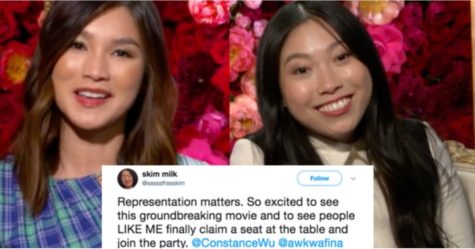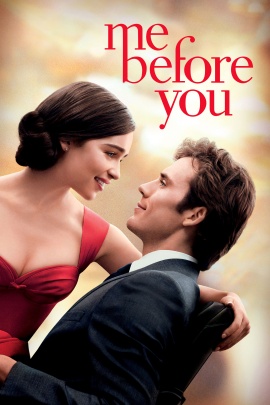Difference Between Good and Bad Representation in Film
October 15, 2018
“Representing” is defined as “the action of speaking or acting on behalf of someone.” Today, representation is a crucial element of film. “Bad” representation is especially important to avoid in the filmmaking. Often, we struggle to define what good and bad representation looks like.
Well, what is good and proper representation? It starts with thorough research and an understanding of what is being placed onto the big screen and projected into the public eye. For those involved in the filmmaking process, attempting to represent something that they do not identify with can be difficult. “Good representation” occurs when a person or culture is portrayed realistically, not purely based on stereotypes. A film with excellent representation is Crazy Rich Asians. The film received praise for its exceptional representation of the Asian culture and race. The film featured an all-Asian cast, a rare occurrence in Hollywood. This brought tears of joy to many Asians around the world when it was announced. Because of valuable personal experience, the actors were able to best convey their culture. Crazy Rich Asians “raised the bar for Asian representation in entertainment” (Selby). Though the film became a milestone for Asian-Americans and minorities in general, it still missed some important aspects in the Asian culture. Darker-skinned Asians were not portrayed equally in the film. Light-skinned Asian actors portrayed the wealthy and famous, while those with darker complexions appeared to portray workers and lower-class citizens. Though most likely unintentional, this can be pinpointed as some bad representation in the film. We continue to see that the films with good representation do not necessarily have the best representation. Nonetheless, Crazy Rich Asians is a clear milestone where representation is concerned.

Unfortunately, inadequate representation is common in film. It is difficult for an underrepresented group in society to have to watch films that poorly represent their group and thus perpetuate minority status. Because good representation can be so difficult to achieve, those involved in the filmmaking process wonder whether or not underrepresented groups should continue to be represented in film at all. But, when it comes along, good representation is incredibly valuable and should, therefore, be strived for rather than no representation whatsoever.

A particular audience that is under-represented in films is the community of people with disabilities. Me Before You, a film about a wealthy man who got into an accident and becomes paralyzed, falls in love with a woman who takes a job as his caretaker. The actor, Sam Claffin, portrays a character with a disability, yet he has never struggled with one himself. In Me Before You, Claflin’s character later dies via assisted suicide, simply because the character does not want to be a burden to his love interest/caretaker. This does not accurately represent the disabled community. In fact, it stereotypes them in suggesting that they want to be put out of their misery. People with disabilities should rather be portrayed by actors that experience a disability rather than abled actors. It is in the hands of those behind such films to ensure that disabled people are not portrayed as deserving only of pity.
Change can start with these films, where we can start to accurately represent the underrepresented members of society and bring about greater change. Though the industry is slowly improving and creating new innovative ways to represent minorities, there are still many films that are ignorant when it comes to representation.
Works Cited
“PORTRAYAL OF MINORITIES IN THE FILM, MEDIA AND ENTERTAINMENT INDUSTRIES.” HOPES Huntington’s Disease Information, web.stanford.edu/class/e297c/poverty_prejudice/mediarace/portrayal.htm.
Powell, Robyn. “Opinion | What Hollywood Gets Wrong About Disabilities.” The Huffington Post, TheHuffingtonPost.com, 7 Mar. 2018, www.huffingtonpost.com/entry/opinion-powell-what-hollywood-gets-wrong-about-disabilities_us_5a9ef0ffe4b0d4f5b66b1882.
White, Abbey. “How Can TV and Movies Get Representation Right? We Asked 6 Hollywood Diversity Consultants.” Vox, Vox, 28 Aug. 2017, www.vox.com/culture/2017/8/28/16181026/hollywood-representation-diversity-tv-movies.


